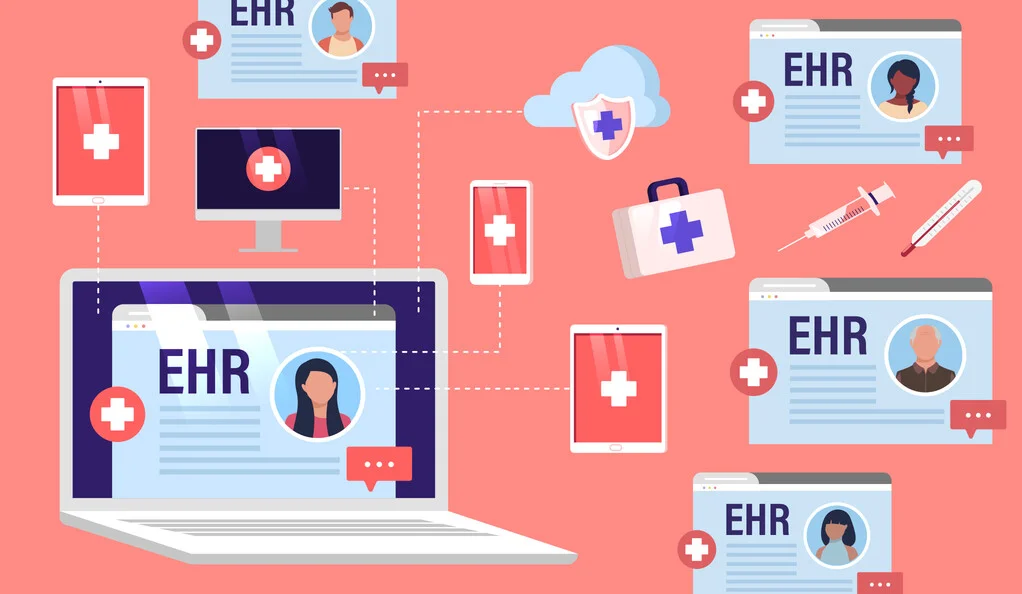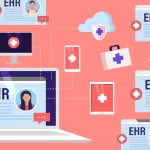
Top free EHR software systems
December 13, 2024Is Free Always Good? Examining Free EHR Solutions
The idea of “free” often comes with mixed connotations, and while it may seem appealing, it’s important to weigh the advantages and disadvantages—particularly when it comes to free Electronic Health Records (EHR) systems. The old adage, “There is no such thing as a free lunch,” may not fully apply to the world of free EHR software, but it does hint at the trade-offs involved.
There are several free EHR systems available today, and understanding what “free” truly means in this context is key to making informed decisions.
What Is a Free EHR?
A free EHR refers to an electronic health record system that is offered at no monetary cost. However, there are nuances to consider. Free EHRs come in three main forms:
- Open-source EHRs
- Ad-based EHRs
- Scaled-down versions of paid EHR software
Open-Source EHR Software
Open-source EHR systems provide users with a General Public License, granting access to the software’s code. Users can customize and share the software free of charge, making it an attractive option for tech-savvy practices.
Scaled-Down Free Versions of Paid Software
Many vendors offer free, limited versions of their paid EHR software. These scaled-down versions lack the comprehensive features of the full software and may limit the number of users or patient records. While the free version provides a cost-effective starting point, it may not suffice as a long-term solution, often encouraging users to upgrade to the paid version.
Ad-Based Free EHR Software
Ad-based EHRs generate revenue through targeted advertising embedded within the platform. While this model allows the software to be offered for free, users must endure the presence of ads, which may be distracting or raise privacy concerns.
Benefits of Free EHR Software
Cost Savings
The primary advantage of free EHRs is cost savings. A study by Medical Economics revealed that the average cost of hardware, software, peripherals, and network connections for primary care practices is $5,900, with additional IT support averaging $3,094. Free EHRs eliminate upfront software costs, reducing financial strain on smaller practices.
Customization Opportunities
Open-source EHRs offer unparalleled customization. Practices can tailor the software to meet their unique needs, provided they have expertise in system design and a clear understanding of workflows.
Pitfalls of Free EHR Software
Limited Features and Functionality
Free EHR systems often lack the robust features of their paid counterparts. Restrictions may include limited user access or storage capacity, making these systems unsuitable for larger practices.
Hidden Costs
While the software itself may be free, users often encounter additional costs. For instance, unlocking advanced features or removing ads may require payment.
Advertising
Ad-based models come with the downside of targeted advertising embedded in the platform. Although ads may not always disrupt functionality, many users find them intrusive or uncomfortable.
Limited Support
Support for free EHR systems is typically minimal. Open-source solutions, for example, rely on community forums and user-generated documentation, which may be outdated or unreliable. Practices using free EHRs may need to invest significant time and effort in troubleshooting and self-help.
Popular Free EHR Systems
Despite their limitations, several free EHR systems have achieved mainstream success.
- VistA (Veteran Administration’s Computerized Patient Record System): This open-source system is widely recognized for its reliability and satisfaction among users.
- Practice Fusion: A prominent player in the market, Practice Fusion holds 15% of the solo ambulatory practice market and 12% of practices with one to three clinicians, according to American EHR Partners.
Free EHR systems can be a valuable starting point for practices with limited budgets, but they come with trade-offs. Carefully evaluate your practice’s needs, the available features, and potential drawbacks before committing to a free solution. With the right understanding and approach, free EHRs can offer a practical, if temporary, alternative to costly systems.
OpenEMR
OpenEMR is a free and open-source electronic health records and medical practice management application that is certified by ONC. The product features a fully integrated electronic health record, practice management, scheduling, electronic billing, and free support.
The system can run on Windows, Linux, Mac OS X, and other platforms. You can choose to run OpenEMR on-location, on your own servers, or opt for a cloud-based deployment.
User statistics indicate that OpenEMR is one of the most popular free electronic medical records and medical practice management solutions, boasting over 3000 downloads per month. In the United States market, it has been estimated that there are more than 5,000 installations. Internationally, OpenEMR has been installed in over 15,000 healthcare facilities.
Open MRS
OpenMRS is an open-source EHR platform. As an open-source platform, OpenMRS allows users to design their own customized medical records system. OpenMRS is licensed under Mozilla Public License version 2.0. Under this license, users can access the software’s source code. It also allows binary distribution, modification of the code, and bundling into larger products that are under different licenses.
The OpenMRS code is described as being based on a “concept dictionary” and modular construction that is used to describe all the data items that can be stored in the system.
The reported advantage of this approach is that it facilitates the interoperability of data, the expansion of the database structure, and adding new functions without modifying the core code. OpenMRS is web-based therefore, it can but can be deployed on a single laptop or a large server. The software can run on Linux, Windows, or Mac OS X.
Users can obtain support for OpenMRS through a vibrant community spanning more than 80 countries, across more than 8000 sites. Its hub of developers, implementers, and users are always on hand to offer collaboration opportunities and technical assistance.
Hippocrate
Hippocrate is offered by a nonprofit organization. The group’s mission rests on making healthcare services more freely available and disrupting medical technology by offering a free EHR and Big Data platform that will encourage collaboration among providers.
Through its free EHR platform and other services, Hippocrate hopes to democratize medical services by offering a sophisticated EHR suite for free, one that doctors in more than 133 countries have subscribed to as of this update.
Hippocrate offers a free cloud-based EHR to solo practice physicians (the price increases to $25/month for practices with 2 to 15 physicians). Hippocrate’s product boasts a well-rounded suite of software solutions including patient acquisition and engagement tools, telemedicine capabilities, big data management, and analysis and medical marketing.
Hippocrates also offers practice management features that can analyze productivity and revenue data. The free product has limited support, as opposed to its paid version which offers 24/7 support. A unique feature of this system involves the use of what it characterizes as a fully encrypted smart Medical Social Network. Using this network users can collaborate with other professionals and refer a patient securely.
Given its emphasis on data management and analysis, Hippocrate also offers sturdy security with advanced encryption, password authentication, and other security technologies available – all compliant with ICD10 and SNOMED.
Are free EHRs a true alternative?
From this limited examination of free EHR, it is likely, not fair to hold to the adage that free often does not always equate to value. Free can be good in certain disciplines in the world of technology, particularly if we are willing to accept a few limitations.
Free tech, usually comes with the caveat of system limitations and free EHR follows this trend. Therefore, when taking on a free service, do not expect all the perks of a paid service, but also remind yourself of the money being saved as a result and factor this into any ROI calculations.
The term “free” in free EHR must be taken with the caveat that there is likely a revenue model to monetize the services. Monetization, unfortunately, comes at the cost of annoyance (of the provider or patients) in the ad-based and pay-to-play models and long-term costs related to upgrading beyond the basic system. As such, the decision as to whether free EHR is appropriate depends on your tolerance for monetization related annoyance.

















